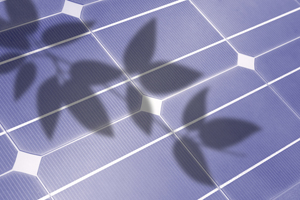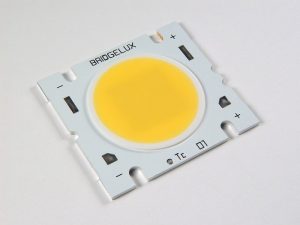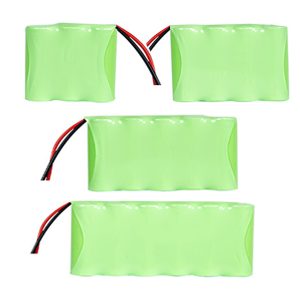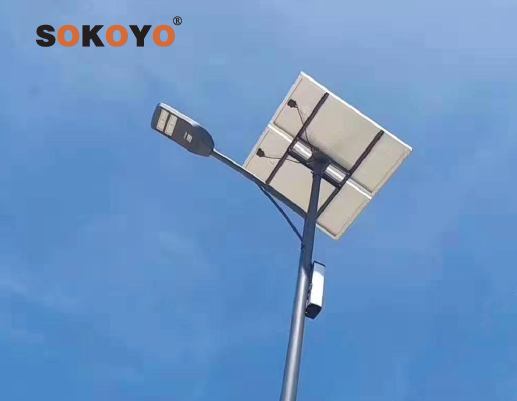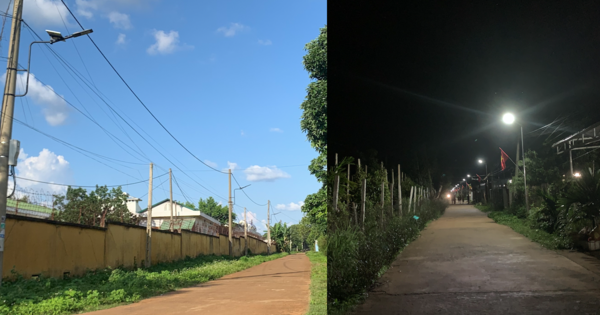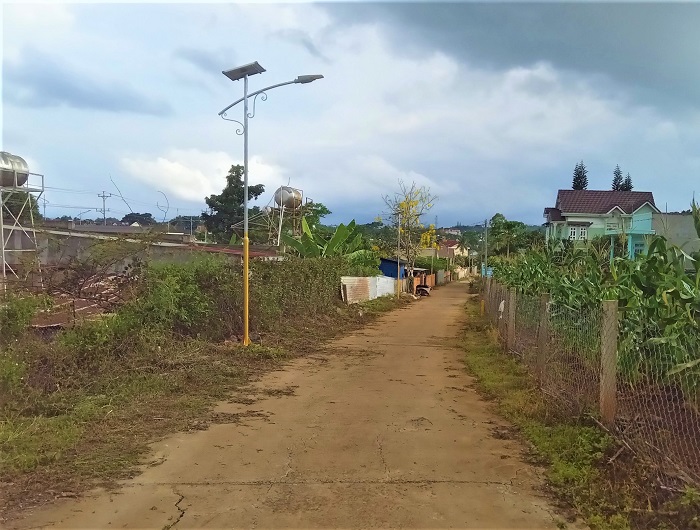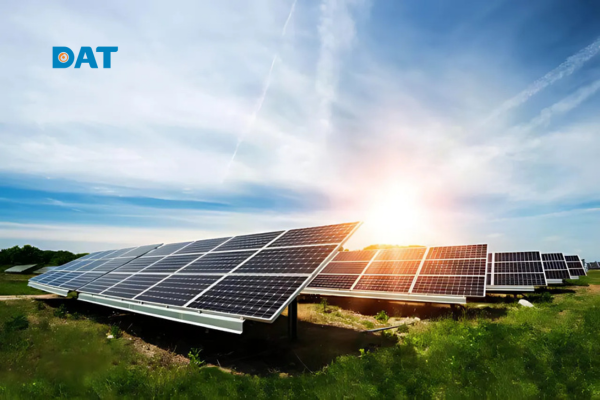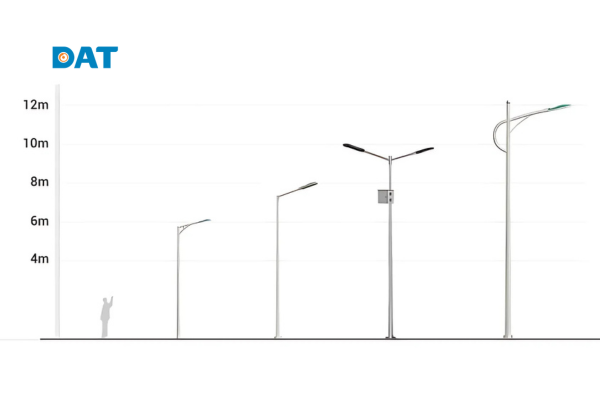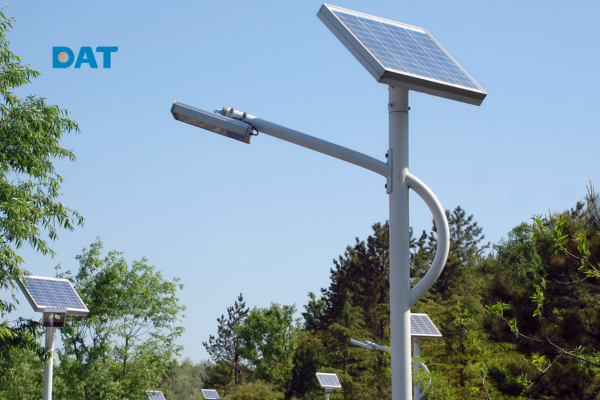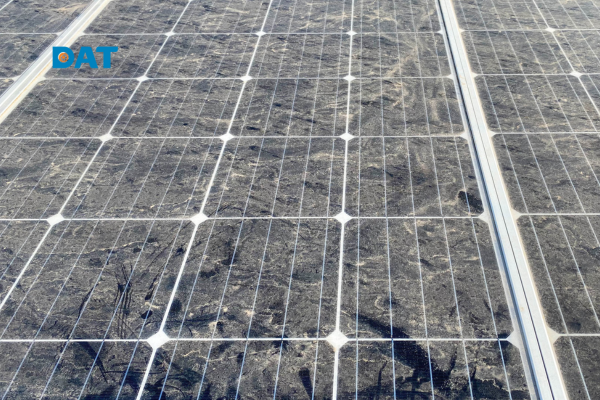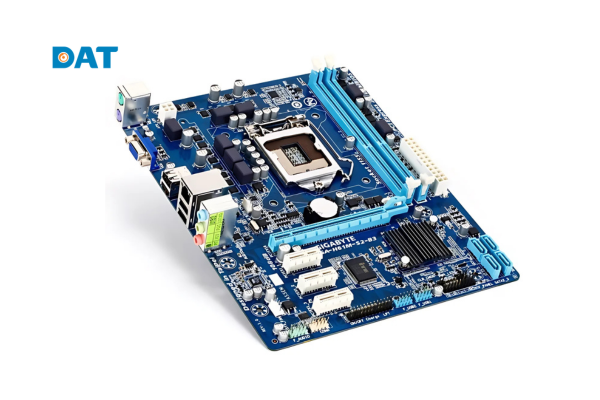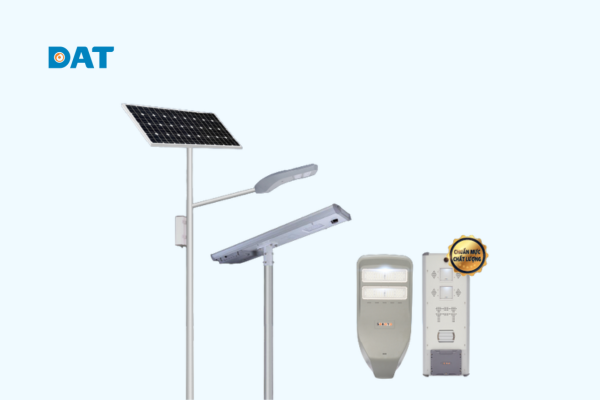Tại sao đèn năng lượng mặt trời không sáng?
Đèn năng lượng mặt trời đang chiếm được sự yêu mến của người tiêu dùng trên toàn thế giới và là giải pháp thay thế hoàn hảo cho đèn điện lưới truyền thống. Tuy nhiên, trong quá trình sử dụng, không thể tránh khỏi những lúc hệ thống gặp vấn đề, trong số đó là hiện tượng đèn năng lượng mặt trời không sáng.
Vậy tại sao đèn năng lượng mặt trời không sáng? Những nguyên nhân và giải pháp khắc phục tình trạng đèn năng lượng mặt trời không sáng sẽ được chúng tôi giải đáp chi tiết trong bài viết này. Hy vọng sẽ giúp người dùng nắm được những kiến thức cơ bản, cũng như biết cách phòng tránh, khắc phục hiện tượng đèn năng lượng mặt trời không sáng.
Đèn năng lượng mặt trời không sáng là hiện tượng gì?
Hiện tượng đèn năng lượng mặt trời sáng yếu thường xảy ra khi đèn không phát huy hiệu quả như mong đợi, với ánh sáng mờ, yếu hoặc nhấp nháy, thậm chí là tắt hẳn. Có nhiều nguyên nhân khiến đèn năng lượng mặt trời solar light hoạt động không ổn định như vậy. Nếu bạn gặp phải tình trạng này, bạn có thể tìm hiểu các nguyên nhân gây ra hiện tượng đèn không sáng để từ đó tìm ra giải pháp khắc phục hợp lý và giúp đèn hoạt động trở lại bình thường.
Những lý do khiến đèn năng lượng mặt trời không sáng
Khi thấy đèn năng lượng mặt trời không sáng hay gặp hiện tượng đèn bị mờ, nhấp nháy thì trước tiên, bạn nên tìm hiểu xem hiện tượng này đến từ nguyên nhân nào. Dưới đây là một số lý do chính khiến đèn năng lượng mặt trời không sáng, các bạn có thể tham khảo:
- Tấm pin không nhận đủ ánh sáng mặt trời
Tấm pin là một trong những thành tố cấu tạo nên đèn năng lượng mặt trời. Những tấm pin năng lượng mặt trời này sẽ tiếp nhận ánh sáng mặt trời vào ban ngày, sau đó chuyển hóa năng lượng đó thành điện năng để thắp sáng bóng đèn vào ban đêm.
Vậy nên nếu thấy hiện tượng đèn năng lượng mặt trời không sáng thì bạn có thể kiểm tra xem có phải là do tấm pin không nhận đủ ánh sáng mặt trời hay không. Trong trường hợp tấm pin bị che khuất bởi các vật khác, không tiếp nhận được nguồn sáng từ mặt trời thì bạn nên thay đổi vị trí lắp đặt phù hợp hơn.
- Tiếp xúc với ánh sáng khác không phải là ánh sáng mặt trời
Một trong những nguyên tắc lắp đặt đèn năng lượng mặt trời chính là không được để gần nguồn sáng khác. Nguyên nhân là vì ánh sáng từ các nguồn khác vào ban đêm sẽ khiến đèn năng lượng mặt trời lầm tưởng vẫn đang là ban ngày và tự động tắt chế độ chiếu sáng.
- Đèn Led bị lỗi
Hệ thống đèn năng lượng mặt trời sử dụng đèn LED để chiếu sáng. Trong trường hợp đèn năng lượng mặt trời không sáng thì bạn có thể kiểm tra xem đèn LED có bị lỗi hay không…
- Pin không sạc đầy
Bộ phận pin đóng vai trò vô cùng quan trọng đối với sự hoạt động ổn định của cả hệ thống đèn năng lượng mặt trời. Một trong những nguyên nhân gây ra hiện tượng đèn năng lượng mặt trời không sáng được cho là đến từ việc pin không được sạc đầy. Hiện tượng này thường xuất hiện khi trời không có nắng liên tục trong nhiều ngày, mưa bão… Pin không được sạc đầy sẽ không đủ năng lượng để thắp sáng bóng đèn, gây ra lỗi đèn năng lượng mặt trời không sáng.
- Đèn bị thấm nước
Trên thực tế, các loại đèn năng lượng mặt trời tiêu chuẩn thường có khả năng chống nước. Tuy nhiên, nếu trời mưa lớn, mưa nhiều ngày, ngập lụt thì vẫn không thể loại trừ trường hợp bị thấm nước dẫn đến hiện tượng đèn năng lượng mặt trời không sáng.
- Chưa bật công tắc
Đèn năng lượng mặt trời vẫn là sản phẩm mới tại thị trường Việt Nam. Do đó không thể loại trừ trường hợp người dùng chưa biết cách bật công tắc hoặc kích hoạt cơ chế tự động khiến đèn năng lượng mặt trời không sáng.
- Đèn năng lượng mặt trời chất lượng kém
Nếu như bạn đã tìm kiếm các nguyên nhân được đề cập trong bài viết mà chưa tìm được lý do tại sao đèn năng lượng mặt trời không sáng thì có thể bạn đã mua phải loại không chất lượng với tuổi thọ ngắn và khả năng chịu các tác động ngoại cảnh kém…
Hướng dẫn khắc phục sự cố đèn năng lượng mặt trời không sáng
Người dùng chỉ cần làm theo những hướng dẫn dưới đây lả có thể khắc phục hiện tượng đèn năng lượng mặt trời không sáng một cách dễ dàng và nhanh chóng.
Bước 1: Tháo rời bộ đèn năng lượng mặt trời
Dựa theo bảng hướng dẫn lắp đặt được đính kèm theo đèn, bạn hãy từ từ, cẩn thận tháo rời bộ đèn năng lượng mặt trời.
Bước 2: Kiểm tra xem đèn có bị ngấm nước hay không
Sau khi tháo rời toàn bộ đèn năng lượng mặt trời thì bạn tiếp tục kiểm tra xem bên trong đèn có nước hoặc bất kì loại chất lỏng nào bên trong hay không.
Bước 3: Kiểm tra pin
Tiếp theo, bạn kiểm tra độ ăn mòn của pin. Nếu bạn thấy một lớp bột màu trắng được phủ trên bề mặt lưu trữ của pin thì nên loại đi vì đây là kết quả của hiện tượng ăn mòn pin. Bạn có thể làm sạch bằng bàn chải mềm, giấy nhám…
Bước 4: Kiểm tra hệ thống dây dẫn
Quan sát hệ thống dây dẫn, mối nối của đèn năng lượng mặt trời có dấu hiệu bị động vật cắn, bị đứt, bị sờn… hay không. Nếu có thì bạn cần thay dây hoặc dùng băng keo sửa điện để dán lại các đoạn bị hở.
Bước 5: Lắp ráp lại hệ thống đèn
Sau khi đã tìm ra các nguyên nhân khiến đèn năng lượng mặt trời không sáng và khắc phục thì bạn hãy cẩn thận lắp lại các bộ phận của hệ thống đèn như ban đầu.
Cách phòng tránh hiện tượng đèn năng lượng mặt trời không sáng
Để phòng tránh hiện tượng đèn năng lượng mặt trời không sáng, bạn cần phải sử dụng đúng cách đèn năng lượng mặt trời.
- Nên sạc đèn trước khi dùng
Để phòng tránh trường hợp đèn năng lượng mặt trời không sáng thì bạn nên sạc trước khi sử dụng. Một trong những lưu ý cho những người mới bắt đầu sử dụng đèn năng lượng mặt trời là khi đèn được lắp đặt xong bạn không nên bật nút On ngay lập tức. Thay vào đó, nên để đèn tiếp xúc trực tiếp với ánh sáng mặt trời khoảng 6 – 8 tiếng. Sau khi trải qua quá trình tích lũy năng lượng thì đến tối bạn có thể bật đèn để sử dụng. Trong khoảng 3 ngày đầu thì bạn nên bật đèn – tắt đèn thủ công, sau 3 ngày thì có thể để chế độ tự động.
- Điều chỉnh góc nghiêng chính xác của tấm pin mặt trời
Vị trí đặt để và góc nghiêng của tấm pin năng lượng mặt trời đóng vai trò quan trọng trong các hoạt động ổn định của đèn. Vậy nên bạn cần phải đặt tấm pin ở những vị trí có thể nhận được ánh sáng mặt trời chiếu trực tiếp trong khoảng 6 – 8 tiếng. Cần căn chỉnh góc nghiêng chính xác của tấm pin sao cho tiếp xúc trực tiếp với ánh nắng mặt trời, cũng như không để bất cứ vật dụng, cây cối nào che khuất góc hướng nắng của tấm pin năng lượng mặt trời.
- Nên tránh ánh sáng của đèn đường
Việc bạn đặt hệ thống đèn năng lượng mặt trời gần ánh sáng đèn đường sẽ gây ra hiện tượng rối loạn nguyên lý hoạt động của đèn. Vì vậy, bạn cần chú ý lắp đặt hệ thống đèn xa các loại ánh sáng không phải là ánh nắng mặt trời để đèn có thể đạt hiệu suất hoạt động tốt nhất.
- Vệ sinh tấm pin mặt trời thường xuyên
Tấm pin năng lượng mặt trời bị bẩn, bị ăn mòn, bị ngấm nước… sẽ khiến việc hoạt động của đèn năng lượng mặt trời bị gián đoạn. Bạn cần phải chú ý vệ sinh các tấm pin năng lượng mặt trời thường xuyên, định kỳ. Đây còn là cách nâng cao khả năng tích điện và tuổi thọ của tấm pin.
- Kiểm tra, thay thế pin sạc
Đèn năng lượng mặt trời được đánh giá là dòng sản phẩm có tuổi thọ và độ bền cao, nhưng không có nghĩa là các thiết bị cấu tạo đèn sẽ dùng được mãi mãi. Bạn cần phải thường xuyên kiểm tra các thiết bị của hệ thống đèn, đặc biệt là bộ phận pin sạc. Nếu thấy hiện tượng pin sạc bị kém thì nên thay mới. Thông thường với tần suất sử dụng liên tục, bạn nên thay pin hai năm một lần. Ở những loại đèn chất lượng cao sử dụng pin LifePo4 thì thời gian này sẽ lâu hơn, bởi vì pin lưu trữ lithium LifePo4 tuổi thọ có thể kéo dài lên đến 8 năm.
Đèn năng lượng mặt trời Sokoyo – Chuẩn mực chất lượng
Việc lựa chọn sản phẩm chất lượng là một trong những yếu tố quan trọng để tránh tình trạng đèn năng lượng mặt trời không sáng. Một trong những thương hiệu được đánh giá là chuẩn mực chất lượng của đèn năng lượng mặt trời hiện nay chính là Sokoyo.
Đèn năng lượng mặt trời Sokoyo được tích hợp nhiều công nghệ mới: cảm biến chuyển động microwave; sử dụng tấm pin mono hiệu suất 21%, độ bền trên 25 năm; chip LED của Bridgelux (Mỹ) và Philips (Hà Lan) cho hiệu suất cao, tuổi thọ trên 10 năm; pin lưu trữ lithium an toàn, tuổi thọ theo phòng thí nghiệm đạt từ 5 – 7 năm, có dự án thực tế trên 10 năm vẫn hoạt động tốt; bộ điều khiển sạc/xả thông minh; thiết kế dạng module dễ dàng thay thế bảo trì; sản phẩm đầy đủ chứng nhận CE, RoHS, IEC, ISO, CB…
Đèn năng lượng mặt trời Sokoyo vận hành hoàn toàn tự động, không cần đấu nối điện lưới, không tốn chi phí đi dây điện, đào đường, chỉ cần cắm trụ, lắp đặt đèn là có thể sử dụng ngay. Đèn hoạt động theo nguyên lý hấp thụ bức xạ mặt trời chuyển đổi thành điện năng, sạc đầy pin lưu trữ để tự động sáng khi trời tối. Khi trời sáng, đèn sẽ tự ngắt mạch và chuyển sang chế độ sạc nên không gây nguy hiểm, không lo về điện giật, cháy nổ. Do không cần đến nguồn điện lưới và hệ thống đi dây chằng chịt nên dễ dàng lắp đặt ở những khu vực có địa hình hiểm trở, vùng sâu vùng xa, huyện đảo và dễ dàng thay thế hệ thống đèn điện AC hiện tại hay lắp mới cho các dự án chiếu sáng đường phố, đường nông thôn.
DAT Group – Nhà cung cấp đèn năng lượng mặt trời uy tín
DAT Group tự hào là Nhà phân phối độc quyền và là Trung tâm dịch vụ của Sokoyo tại Việt Nam. Với hơn 17 năm kinh nghiệm, sức mạnh từ hệ sinh thái giá trị, DAT Group sẽ đáp ứng đa dạng nhu cầu của khách hàng, đặc biệt là các dự án thầu công, dự án chiếu sáng đường nông thôn, chiếu sáng đô thị. DAT Group hỗ trợ tư vấn, thiết kế giải pháp chiếu sáng, hệ thống giám sát IoT, đồng hành cùng đối tác trong việc triển khai lắp đặt trọn gói, giúp khách hàng gia tăng hiệu quả. Đặc biệt, chế độ bảo hành dài hạn và đổi trả hợp lý chỉ có tại DAT Group còn mang đến sự an tâm tuyệt đối cho khách hàng.
Chứng chỉ đèn năng lượng mặt trời Sokoyo
| Sokoyo đạt chứng chỉ về việc hạn chế sử dụng một số chất độc hại trong tấm pin tiêu chuẩn được ban hành bởi Liên minh Châu Âu. | |
| Chứng chỉ “Tuân thủ Tiêu chuẩn Châu Âu” thể hiện Sokoyo đã vượt qua bài kiểm tra và được phép bán trên thị trường Châu Âu. | |
| ISO 14001:2015 là tiêu chuẩn quốc tế dành cho hệ thống quản lý môi trường. Sokoyo đáp ứng được tiêu chí hạn chế những tác động của hoạt động sản xuất đến môi trường xung quanh. | |
| ISO 9001:2015 là tiêu chuẩn quốc tế công nhận cho việc quản lý chất lượng của Sokoyo. | |
| Sokoyo có hệ thống quản lý an toàn và sức khỏe nghề nghiệp đạt chuẩn mực quốc tế theo tiêu chuẩn ISO 45001:2018 | |
| OHSAS 18001:2007 chứng nhận doanh nghiệp được cả thế giới thừa nhận đạt tiêu chuẩn an toàn lao động và nhân quyền. |
Chính sách bảo hành đèn năng lượng mặt trời Sokoyo
Đèn năng lượng mặt trời Sokoyo không chỉ sở hữu chất lượng hoàn hảo, hiệu suất chiếu sáng ấn tượng, tuổi thọ sản phẩm cao, giá cạnh tranh mà còn có chính sách bảo hành lên tới 3 năm.
Chi tiết chính sách bảo hành sản phẩm Sokoyo.
Thông tin liên hệ
Để biết thêm thông tin về sản phẩm đèn năng lượng mặt trời Sokoyo, các giải pháp quản lý, giám sát hệ thống IoT, nhanh tay gọi ngay đến Hotline 1800 6567 (miễn cước) để được DAT Group tư vấn và hỗ trợ 24/7.

